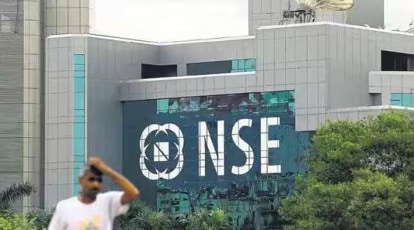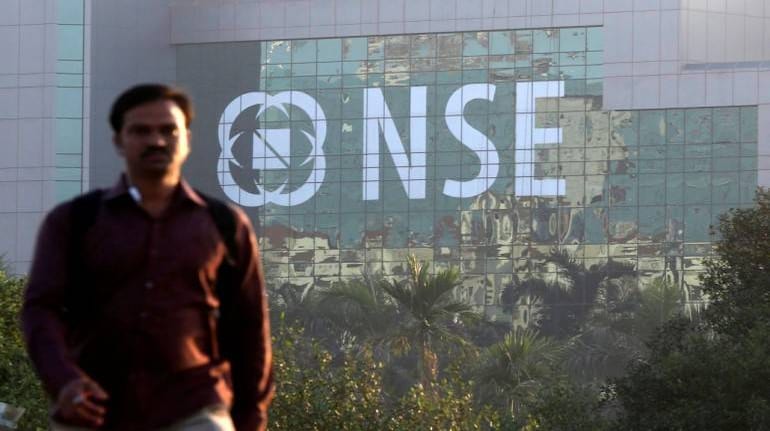NSE Unveils Bold Plan for Extended F&O Trading Hours: A Game-Changer for Indian Markets

NSE Unveils Bold Plan for Extended F&O Trading Hours: A Game-Changer for Indian Markets
In a bold move set to redefine the landscape of the Indian stock market, the National Stock Exchange (NSE) is gearing up to introduce an evening trading session for futures and options (F&O) contracts. This groundbreaking proposal, already submitted to the Securities and Exchange Board of India (SEBI), aims to extend trading hours beyond the traditional closing bell, potentially opening the doors for a trading window that stretches until 11:30 pm.
The NSE’s vision for an extended trading session from 6-9 pm, and the possibility of further expansion, is poised to usher in a new era of opportunity and convenience for market participants. This article explores the significance of this development, its potential benefits, and the regulatory considerations involved.
Why Extend Trading Hours?
The decision to extend trading hours comes as a response to evolving market dynamics and growing demand from traders, investors, and institutions alike. In today’s fast-paced global economy, financial markets operate around the clock, and the NSE’s move is aimed at aligning with international standards.

Extended trading hours offer several key advantages:
1. Global Accessibility: With extended hours, the NSE will provide greater access to international investors who may be located in different time zones. This can potentially attract more foreign capital into Indian markets.
2. Flexibility for Market Participants: The extended trading hours will accommodate the needs of a diverse range of market participants, including retail traders, working professionals, and institutions. It allows them to trade when it’s most convenient for them.
3. Increased Liquidity: Longer trading hours can result in increased liquidity as more trades occur, potentially reducing bid-ask spreads and benefiting market efficiency.
4. Risk Management: The extended session can offer market participants additional opportunities for risk management and hedging strategies, especially in volatile market conditions.
5. Competitiveness: Staying competitive in the global financial landscape is crucial. Extended trading hours align the NSE with international exchanges and help attract international investors and traders.

SEBI’s Regulatory Review
Before the NSE’s ambitious plan can be put into action, it must receive regulatory approval from SEBI. The regulatory body will carefully assess the proposal to ensure that it aligns with market integrity and investor protection. SEBI will likely scrutinize the following aspects:
1. Risk Management: SEBI will evaluate the NSE’s risk management framework for the extended trading session to safeguard against excessive volatility and potential market manipulation.
2. Market Surveillance: The regulatory body will assess the exchange’s surveillance capabilities to monitor and respond to any irregular trading activities effectively.
3. Investor Protection: SEBI will ensure that adequate measures are in place to protect retail investors, including circuit breakers and price limits.
4. Operational Readiness: The NSE must demonstrate its operational readiness to smoothly execute the extended trading hours, including adequate technology infrastructure and support.
5. Market Education: SEBI may require the NSE to launch educational initiatives to ensure that market participants are well-informed about the risks and opportunities associated with extended trading hours.

The Path Forward
If SEBI grants its approval, the NSE’s extended trading hours could be a game-changer for Indian markets. It’s important to note that the exchange’s proposal also includes the possibility of further extending trading hours until 11:30 pm. Such a move would place Indian markets in line with major global exchanges, offering seamless trading opportunities to investors across the world.
While the proposal is undoubtedly promising, it’s important to consider the potential challenges. Extended trading hours could place added stress on market participants, requiring them to adapt to a longer workday. It may also necessitate changes in trading strategies and risk management practices.
Nevertheless, the NSE’s initiative is indicative of a forward-thinking approach aimed at bolstering India’s position in the global financial landscape. The Indian market ecosystem is evolving, and this development underscores the nation’s commitment to embrace change and innovation.
Market Reaction and Potential Challenges
The proposed extension of trading hours on the NSE has already generated significant interest and speculation among market participants. Traders and investors are closely watching the developments, eager to gauge the impact of this potential change on market dynamics. Some anticipate that increased liquidity during the extended hours could lead to more trading opportunities, while others are concerned about the potential for heightened volatility, especially during late-night sessions.
One of the key challenges that the NSE and SEBI will need to address is ensuring a level playing field for all market participants. It’s imperative that retail investors have the same access and tools as institutional players during the extended hours. Implementing safeguards to prevent unfair advantages or predatory trading practices will be crucial to maintaining market integrity.
Another aspect to consider is the impact on market infrastructure. The extended trading hours will demand robust and reliable technological systems to handle the increased volume and activity. The NSE will need to invest in and continually upgrade its trading infrastructure to ensure seamless operations during the extended sessions, minimizing the risk of technical glitches or disruptions.
The Broader Economic Implications
Beyond the immediate implications for market participants, the extension of trading hours on the NSE could have broader economic consequences. It could potentially boost India’s attractiveness as a global investment destination, enticing foreign investors with the prospect of trading in a more aligned timeframe with their home markets.
Conclusion
In the ever-evolving world of finance, adaptability and innovation are key. The National Stock Exchange’s proposal to introduce extended trading hours for F&O contracts is a testament to India’s determination to remain competitive on the global stage. By offering greater accessibility, flexibility, and potential benefits to market participants, this initiative has the potential to reshape the Indian stock market.
However, it’s important to remember that regulatory scrutiny is a vital component of this journey. SEBI’s role in ensuring that the extended trading session aligns with market integrity and investor protection cannot be overstated. If successfully implemented, this extended trading session could usher in a new era of opportunity and growth for India’s financial markets, firmly establishing them on the global map.






